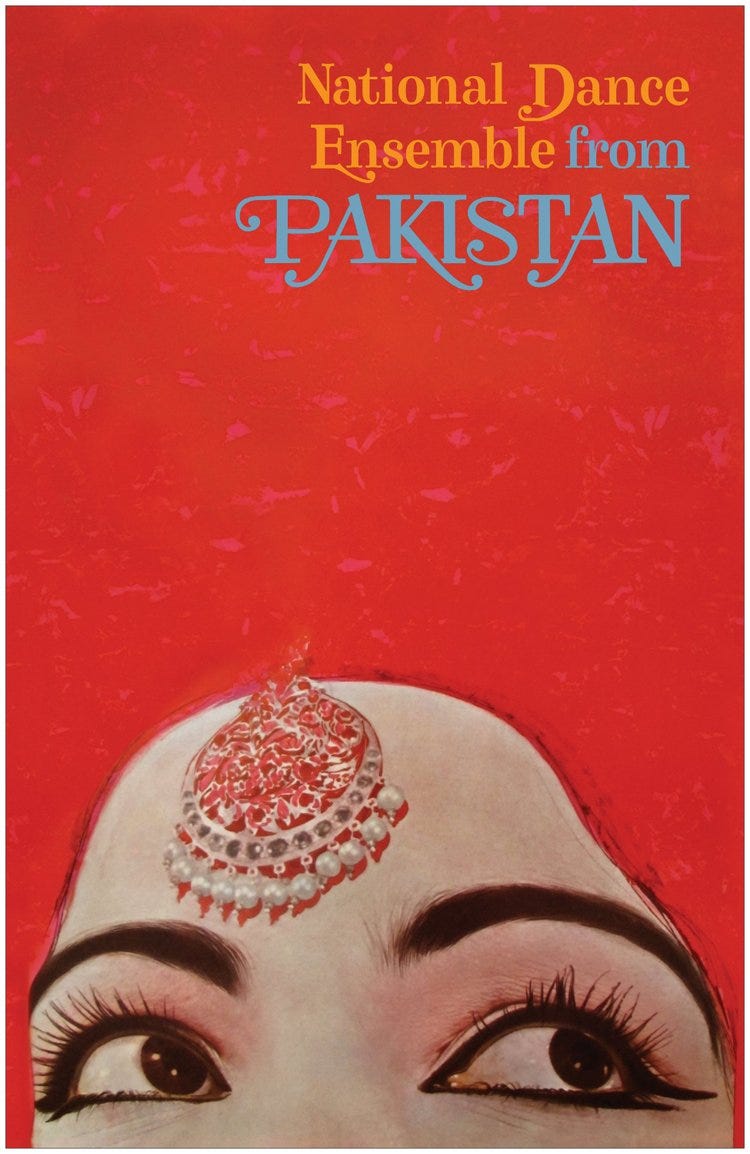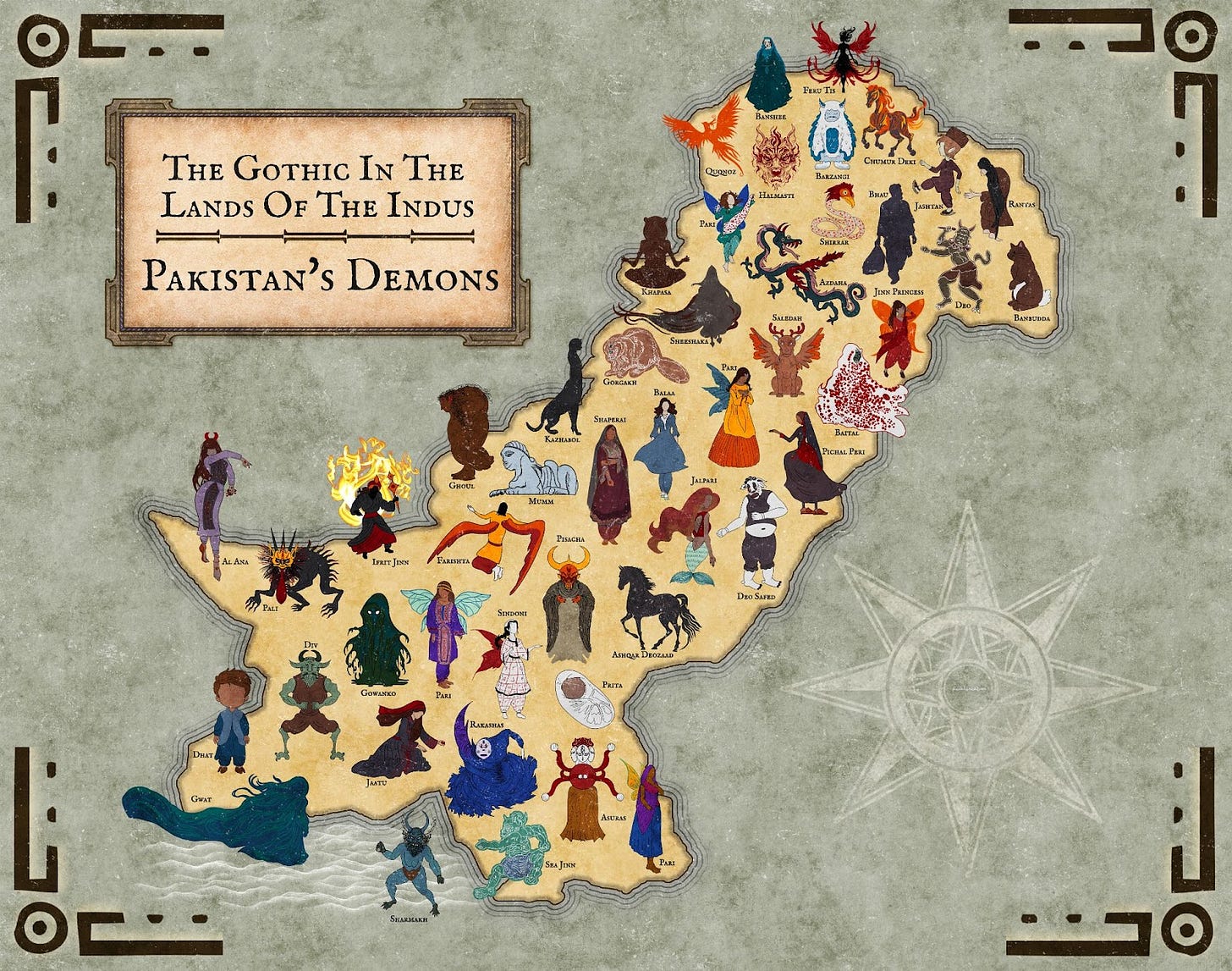Welcome to the Brown History Newsletter. If you’re enjoying this labour of love, please do consider becoming a paid subscriber. Your contribution would help pay the writers and illustrators and support this weekly publication. If you like to submit a writing piece, please send me a pitch by email at brownhistory1947@gmail.com.
Don’t forget to check out our SHOP and our Podcast.

Demonic Legends from around the Indus
You may have often heard the saying, “History is written by the victors.” It underscores the idea that those who triumph in conflicts or power struggles have the authority to shape and narrate historical accounts, emphasizing the importance of folklore and collective memory as crucial counterbalances, preserving diverse perspectives and narratives that may otherwise be marginalized or erased from mainstream historical records.
Remnants of the collective memory of a community, in essence, lore is an enthralling window into alternate history. It is the history we tell, and want our children to remember - it is not written in royal courts but is penned in the hearts of the people.
History in particular has been documented extensively by the British, and whilst they were a lot better than the French when it came to authentic documentation, they were still Europeans at the end of the day. It is our folklore that preserves our customs and traditions from the eye of the colonizer. It encompasses the values we hold dear, without the prejudice of the outsider, without judgment, and without preconceived notions of our inferiority or incivility.
History can be too boring to read and too technical to understand. Its interpretation, and subfields, such as historiography, causation, and comparative study can be highly theoretical. Folklore, in stark contrast, is neither of these. Yet, a folktale can tell you everything you need to know about a community.
This can include attitudes towards people, family, friends and nature; what actions they frown upon; what values they hold in high regard; what they hold sacred; what customs are important, and why it is so; what they fear most; how do they pray; how do they live; their festivals, games, food, music, dances, wedding celebrations, and mourning. It also gives insight into theology, religion, perspective on gender, collective cultures, ethnicity and linguistics. It is why studying and exploring folklore, myth and magic, as well as how it translates into practice is so important.
One of the most fascinating subsets of folklore is demonology, where shadows lurking in the darkness come to life and the ancient whispers weave tales of intrigue and fear. Pakistan’s demonology has been inspired by several factors: indigenous ethnic diversity, religion, and the region’s rich history.





